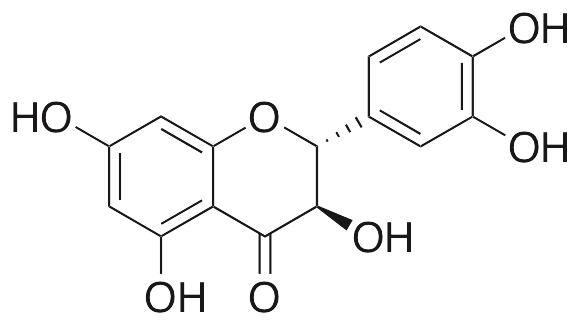Description
Taxifolin is a catechol-type flavonoid that displays cardioprotective, neuroprotective, antioxidative, and anticancer chemotherapeutic activities. In animal models of diabetic cardiomyopathy, taxifolin inhibits myocyte apoptosis (through inhibition of caspase-3 and caspase-9 activation, release of cytochrome c, and increases in JAK/STAT3 activation), attenuating structural pathology and improving diastolic function. Taxifolin displays neuroprotective properties in models of Alzheimer’s disease as it prevents aggregation of amyloid-β (Aβ) proteins by reacting with lysine residues. This compound also increases quinone reductase activity and decreases NADPH oxidase activity, activating the antioxidant response element (ARE). Additionally, taxifolin inhibits fatty acid synthesis and cell growth and induces apoptosis, inhibiting proliferation of cancer cells in vitro and in vivo.
